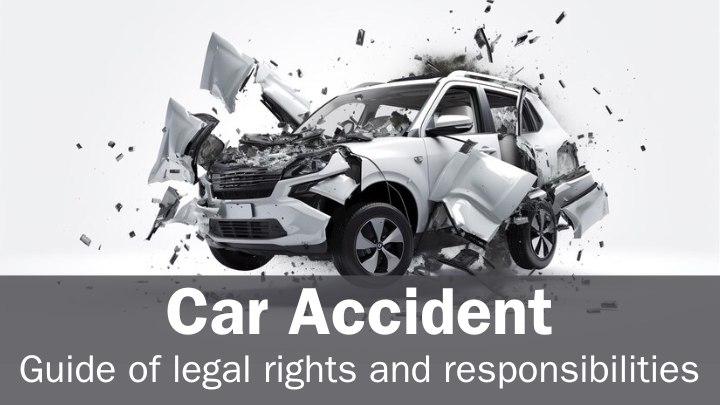
You have the right to call the police after a car accident. This is crucial for documenting the incident and potentially avoiding citations. Please speak to the officer at the scene, answering their questions thoroughly. Refrain from apologizing or admitting fault, as this can damage your case. Also, make sure to get any witnesses’ names and contact information. Statements from witnesses may be very useful in supporting your auto accident lawsuit.
Seek medical attention
It is natural to feel shocked and overwhelmed after a car accident. Your mind may be focused on your health and well-being, but it is important to remember that your legal rights are also at stake.
Prompt medical attention is vital to ensure you are treated for any injuries because the sooner an injury is documented, the more evidence it will provide in a potential case against another party. Even minor injuries can turn into long-lasting complications if not treated properly.
While you are waiting for the police to arrive, take pictures of the accident scene, skid marks, property damage and any visible injuries. Ensure that you get the names and contact information of any witnesses. Avoid admitting fault or apologizing for the crash, as these statements can be used against you. Also, get a copy of the police report for your records.
Contact a lawyer
If you are seriously injured or your car is damaged, getting your vehicle back on the road and receiving compensation for your losses may take longer than expected. In the meantime, a car accident Keller attorney can evaluate your case to see if you are eligible for compensation for your expenses and pain and suffering.
An attorney can also work with the insurance companies to ensure that you are represented fairly and that they do not try to downplay your injuries or get you to accept a low settlement offer. They can even file a lawsuit against the at-fault party and pursue compensation in court if necessary.
It is important to remember that you should never speak with the at-fault driver’s insurer after a crash except for exchanging contact and insurance information or asking if they are okay. Admitting fault or apologizing can hurt your case. Instead, it would help if you allowed your lawyer to communicate with the insurers on your behalf.
Report the accident
In some states, the police must report car accidents that result in injuries, deaths, major damage, blocked traffic, or dangerous road conditions. Even if this is not the case in your State, it is still highly recommended that you report the accident.
A well-documented police report provides valuable evidence to support your claim with insurance providers. With a police report, insurance adjusters can rely on conflicting accounts of the crash from the involved parties, leading to disputes and delayed settlements.
Taking photos of the accident scene, vehicle damage, and weather conditions can also prove helpful in supporting your claims. Witness statements can also provide unbiased, independent views of what occurred and offer important evidence to support your claims. The police will also complete an incident report, and you may wish to obtain a copy for your records. This will be especially useful if you must court or dispute an insurance company’s accident assessment.
Contact your insurance company
Documentation is an incredibly powerful tool in the fight for justice in the wake of a car accident. Medical records detailing injuries sustained, repair estimates from mechanics illustrating damage incurred, photographs that showcase vehicle damage, and witness statements corroborating events occurring at the time of the crash – all of these pieces of evidence can help you secure appropriate compensation from your personal insurance policies.
It’s also important to be very careful when communicating with the other driver(s). Do not admit guilt or blame at the scene. Remember, anything you say can be used against you in court. If an officer or another driver asks you questions, ask for them to leave you alone until your attorney is present.
It’s also a good idea to get the other driver’s name, contact information, insurance company, and policy number (and owner information if it’s not the driver). This will come in handy when trying to settle an accident claim later.
